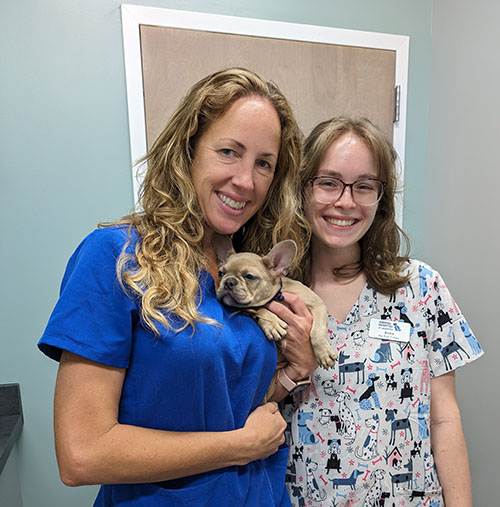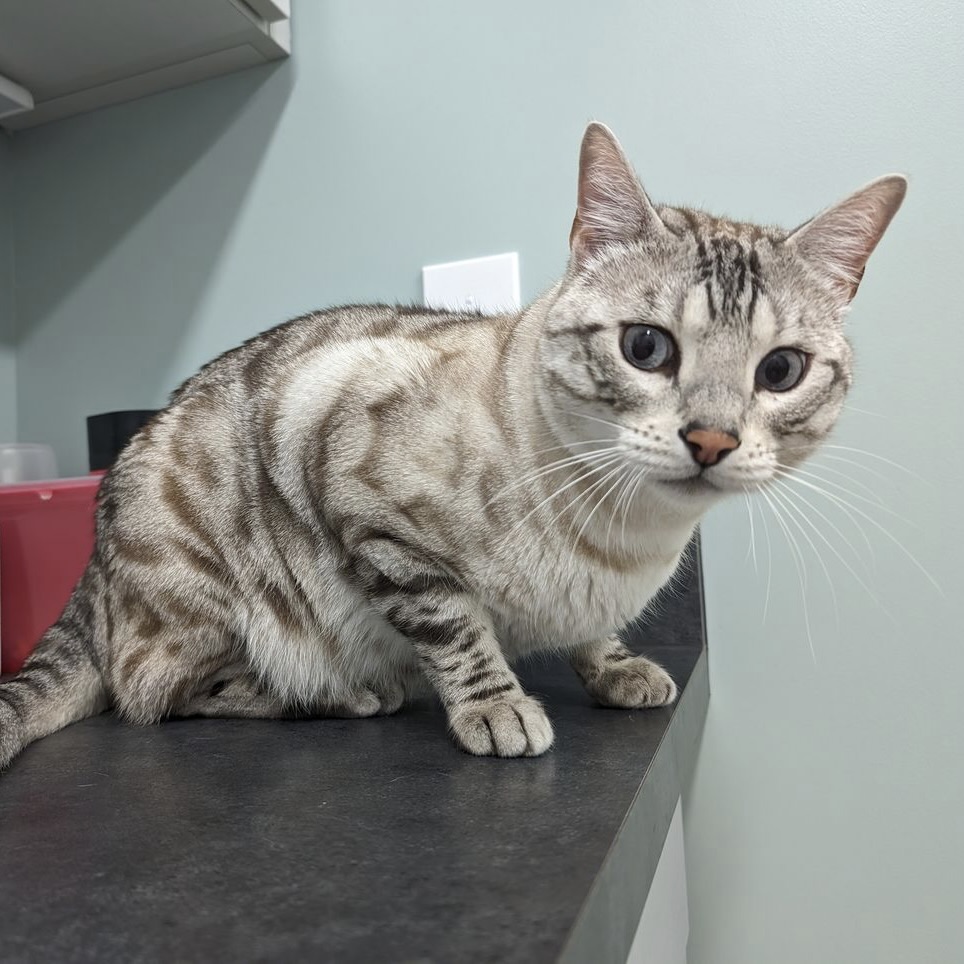
Doing Pet Dental Care Right
Is dental care part of your pet's daily health routine? If not, now is a good time to start. Pets need regular checkups and teeth cleanings to stave off plaque buildup, infection, tooth loss, and other health problems. Without consistent care, pets can develop dental disease as early as age 2, which is why we advocate for a preventive dental approach, which includes oral checkups, teeth cleanings, dental X-rays, and more.
Keep your pet's mouth healthy. Schedule a dental exam for your pet!
Prevent Dental Disease in Pets
The best cure for dental disease is to prevent it altogether. However, if you see any of the following signs in your pet, you might want to schedule a dental exam sooner than later:
- Bad breath
- Swollen, bright red gums
- Yellow and brown residue encrusted along the gum line
- Excessive drooling
- Dropping food while eating
- Eating less
- Increased irritability, less active than usual
- Pawing at their face and mouth

Dental Care for Maximum Benefits

How to Improve Your Pet’s At-Home Dental Care
If you can, try to brush your pet's teeth as often as possible to prevent food residue from building up and turning into plaque. And if you have a puppy or kitten, even better! You can start getting your young pet used to future brushing of their adult teeth by having their mouth looked into and gently probed with fingers or a toothbrush to turn this practice into a healthy habit.
However, if brushing is not an option, diets can also support your pet's oral health. Currently, both Animal Hospital of Lewisville veterinarians have their own dogs on the dental diet! Dental wipes, dental chews, and water additives are also available for you pet.
In addition, your pet should see their veterinarian twice yearly for check-ups to determine if a future dental cleaning is needed.

